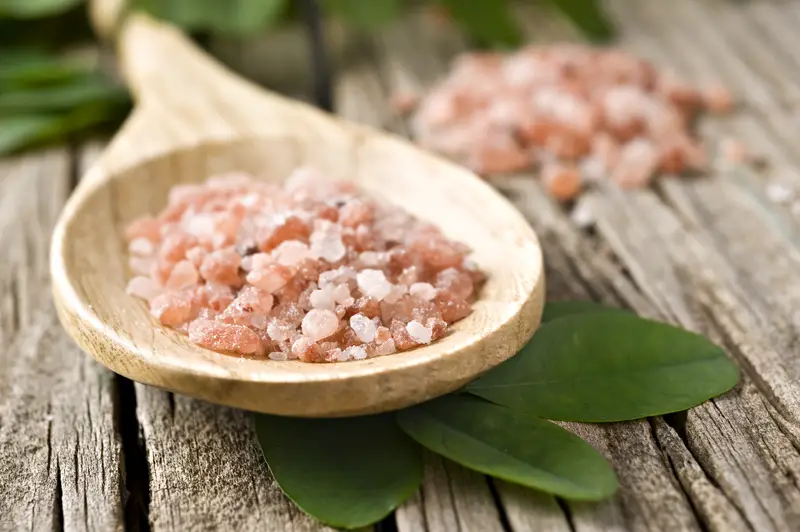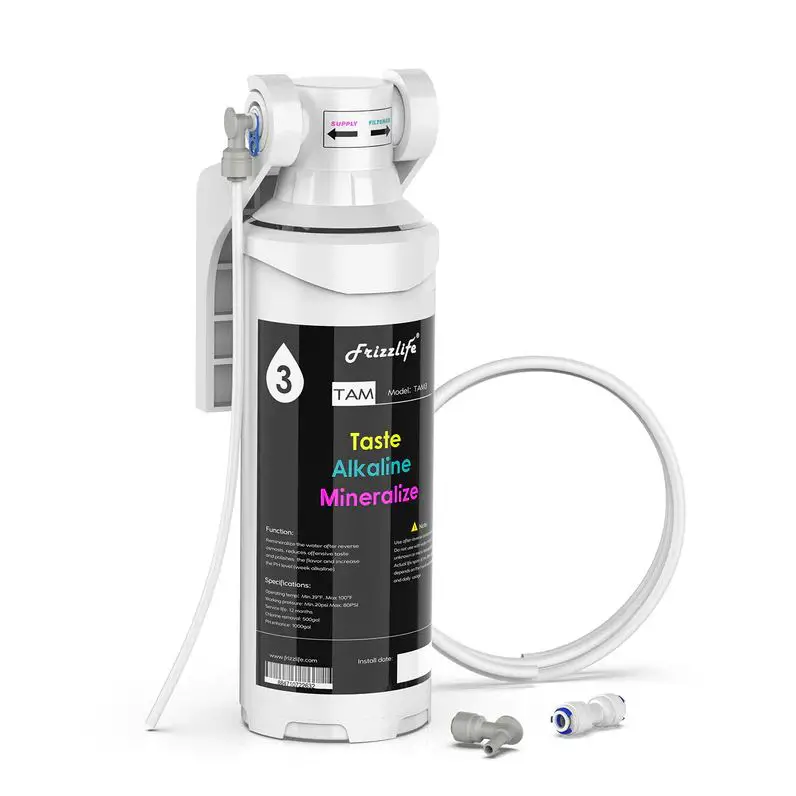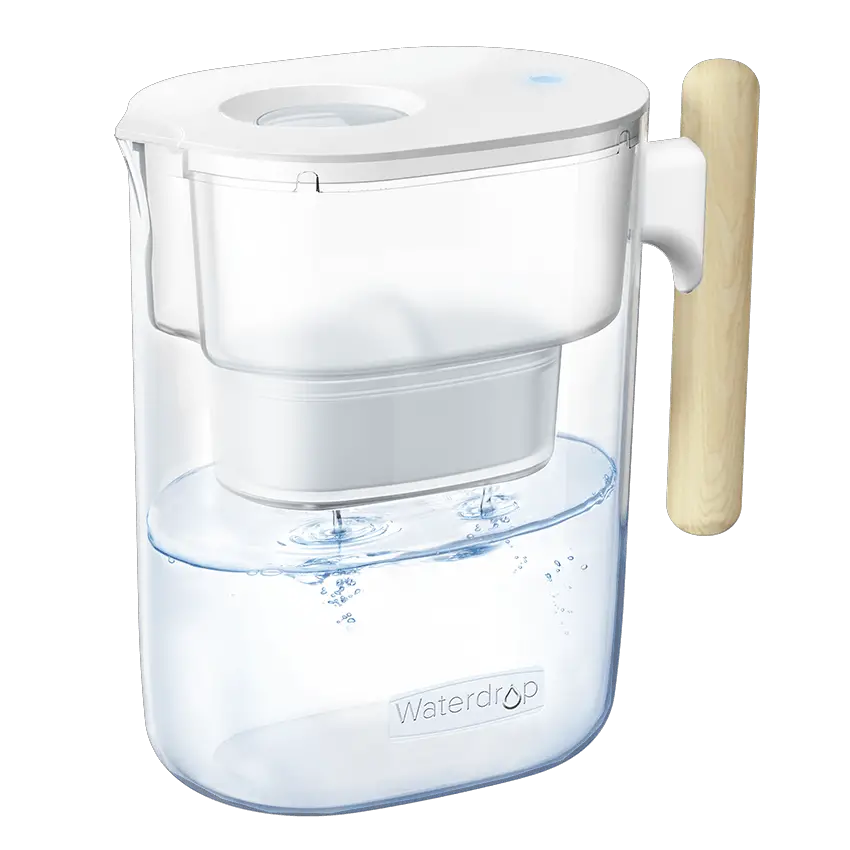Minerals can be added to water using mineral salts, drops, powders, and tablets. Essential minerals calcium, magnesium, potassium, sodium and zinc can be added to water and easily absorbed. Essential minerals are critical to the human body as it cannot produce them on its own.
Nearly half of all Americans do not meet their daily mineral requirements, so it is highly likely you need to increase your mineral intake. The mineral composition in water varies, especially between different types of water, like tap, filtered and reverse osmosis, and you may be wondering if you can add minerals to your water.
This article will explain why you may want to add minerals to water, the different minerals you may add to water, and the methods you may use to do so.
7 Ways To Add Minerals To Your Water
There are many types of water that are naturally low in mineral content and some that actually completely lack minerals, including distilled water and reverse osmosis water.
- Distilled water is pure water that has been cleared of pollutants and minerals by boiling it into vapor and condensing it back into liquid. This process also removes all minerals, as they do not evaporate with the water.
- Reverse osmosis is a purification method that uses a semi-permeable membrane to filter pollutants and big particles such as chlorine, salt, and soil from drinking water. This method removes the minerals as the water passes through the membrane.
Although most people enjoy using these water purification methods, they overlook that the process depletes all of the nutrients that human bodies require to keep healthy, including essential minerals.
Note that reverse osmosis depletes these minerals in the water, but that doesn’t mean it is bad for you.
To remineralize your drinking water, you simply need to reintroduce the minerals that were lost from the water.
You can also introduce minerals to other types of water, including normal tap water, well water, and bottled water that can be naturally low in mineral content.
There are 7 ways to add minerals to water:
- Remineralization filter
- Mineral drops
- Mineral salts
- Alkaline water bottles
- Powders
- Tablets
- Alkaline pitchers
1. Remineralization filter
A typical reverse osmosis water filter system has at least three stages of filtration: a pre-sediment filter, an activated carbon filter, and the semi-permeable membrane. Most models can usually be upgraded with a pH-balancing or remineralizing filter without having to replace the entire system.
You can easily add that stage to your filter if it is not already there. You simply add the filter to the filtration stages after the activated carbon filter and semi-permeable membrane.
When water goes through the post-mineral filter, minerals are added back to normalize the pH level.
That is the most convenient approach to take advantage of the benefits of reverse osmosis and mineralized water.
Here is a great example of a simple remineralization filter available from Frizzlife. The TAM3 designed to connect as a post reverse osmosis remineralization system and will produce roughly 900-1,000 gallons of mineralized and alkalized water (pH of ~7.4). It can be used independently with any RO system that uses a standard 1/4″ connection and can be easily installed yourself.
2. Mineral drops
Trace mineral drops are manufactured using a unique combination that contains all of the microminerals your body needs.
You can choose to add mineral drops to your glass of water before drinking, or you can add the mineral drops to a larger quantity of water, such as a pitcher or dispenser, depending on the product you choose.
Mineral drops can be found in many stores, including Walmart and Amazon. You can choose a solution that only contains one mineral, such as iron. However, complete trace mineral drops are far more common and popular, such as this product:
Mineral drops are one of the most cost-effective remineralization methods because only a few drops are required to restore or increase the water’s mineral content.
3. Mineral Salts

A pinch of mineral-rich salts is a great option for adding minerals to your water.
Something as simple as Pink Himalayan salt can boost the mineral content of your water, because it contains a high concentration of trace minerals, including calcium, magnesium, and potassium. In fact, according to the Journal of Pharmaceutical Research it contains 90% of the essential minerals that we need each day.
Pink Himalayan salt it is an excellent way to replenish any mineral-depleted water, such as reverse osmosis water. Simply add a pinch of Himalayan or rock salt to each gallon of filtered water to restore the minerals.
This approach is not only cost-effective, but many also claim it has other advantages, such as assisting with weight loss, decreasing high blood pressure, and improving lung function.
Please don’t use table salt as a mineral supplement, because it is mainly just sodium (not other minerals). Drinking water with too much sodium is not advisable, especially if you have hypertension.
4. Alkaline water bottles
Alkaline water bottles is an inexpensive way to supplement your drinking water with minerals. Simply add your water source and drink normally through the straw.
As you sip through the straw, these bottles raise the pH level of the water by adding measured amounts of calcium and magnesium.
An alkalizing bottled water solution has the obvious advantage of requiring no setup. Another advantage is that alkalizing bottles are a better alternative for traveling around or taking to work, because they are smaller, more secure and you don’t have to remember to bring any supplements with you.
The best alkaline water bottle on the market at the moment is the DYLN Alkaline Water Bottle.
5. Powders
There are various powders able to remineralize the water. Clay powder is one of the most common and contains natural minerals that you can add to water. A good example of clay powder is food-grade Bentonite clay, which comes as either:
- Calcium
- Sodium bentonite clay.
Mix a tablespoon of clay with 8 ounces of your drinking water. Its advantage is that it is easy to use.
6. Tablets
Minerals can be added to your water using tablets.
Most mineral tablets designed to be added to water are effervescent and are based on electrolyte solutions, so they are often tastier than some of the other mineralization options. Mineral tablets are available as complete mineral supplements or as a single mineral supplement. Magnesium tablets are particularly popular. Here are some great examples readily available from Amazon:
Tablets are also ideal for mineralizing large amounts of water.
7. Alkaline pitchers
Alkaline water pitchers are another inexpensive way to add minerals like calcium and magnesium to your water. A filter cartridge in an alkaline water pitcher adds a precise amount of minerals back into a batch of water. Simply store your water in the alkaline water pitcher, and it will return all of the minerals to it automatically during the filtration time.
One benefit of Alkaline pitchers is they are able to mineralize a large quantity of water that you can store on your counter-top or fridge easily, making it is a good long-term investment too.
The Waterdrop 10-Cup Chubby comes with a regular filter, but you can buy the special Alkaline water filter from waterdropfilter.com the next time you need a replacement. These alkaline waterdrop pitchers are also available from Amazon.
5 Reasons Why You Should Add Minerals To Water
1. Lowers your blood pressure
Inadequate calcium and magnesium levels have been linked to high blood pressure, a risk factor for heart disease.
Drinking natural mineral water or mineralized water, which can be an excellent source of these nutrients, may help lower blood pressure, especially in persons suffering from high blood pressure.
2. Strengthens the bones
Calcium is essential for bone health at all stages of life since it helps with bone formation and maintenance. It helps in ensuring your nerves, muscles, and cells function properly.
Unfortunately, your body cannot make or produce Calcium, but since you can acquire it from the foods and drinks you take, drinking mineral water that contains calcium is beneficial. Mineral water also contains bicarbonate and magnesium, which can help provide you with additional calcium, which may help to support strong bones.
3. Regulate blood circulation.
Water high in calcium, magnesium, and potassium, is rich in all of the minerals that help to circulate blood. Calcium in particular, controls the heartbeat’s pace and rhythm.
4. Overall heart health.
Drinking water rich in minerals like Potassium and magnesium helps in the regulation of blood pressure.
Mineral water consumption reduces bad (LDL) cholesterol levels, while increasing good (HDL) cholesterol levels. Mineralized water helps maintain your heart and functioning correctly by reducing the bad cholesterol, which would otherwise raise your risk of heart disease and other diseases.
5. Alleviates constipation.
Getting adequate magnesium in your diet can help you avoid constipation and improve your digestive system’s health. Magnesium enhances stool consistency by drawing water into the intestines.
It also relaxes the muscles of the intestine, allowing for regular bowel motions.
The Different Minerals That Can be Added To Water
Copper
Copper is notably crucial for children’s growth, cognitive development, immune defense mechanisms, and the generation of red and white blood cells. It is also required for the correct development and strength of bones.
Copper is a trace element, which means that it is only required in tiny levels, and you can drink it out of a copper-infused alkaline water bottle. You can find all these brands on Amazon.
Some of these bottles include;
- Kosdeg Hammered Copper Water Bottle.
- Otiem 100 Pure Copper Water Bottle.
- VEDANA Premium Ayurvedic Pure Copper Water Bottle.
Calcium
When it comes to your body, calcium is an essential mineral that aids in the development of strong bones as well as strong and healthy teeth. There are different methods you can use to add Calcium to your drinking water. Either with mineral drops or an alkaline water filter specified for that particular function.
- Trace Minerals Liquid Ionic Calcium.
- Exo Terra Exo Terra Calcium Liquid, Calcium, Magnesium Supplement.
- pH Recharge 3F Alkaline Water Filter.
Iron
The portion of your red blood cells that transports oxygen from your lungs to the rest of your body is called hemoglobin. Hemoglobin is made with the help of iron. Iron is involved in many essential activities for proper bodily functions, including oxygen transport, oxidative phosphorylation, and neurotransmitter metabolism.
Iron is a trace mineral, though the amount required is slightly more than for other microminerals.
You can add Iron into your drinking water using Remineralizing filters such as;
- Frizzlife TAM3 Alkaline Remineralization Under Sink Inline Water Filter.
- Frizzlife TD-9 Alkaline Remineralization Under Sink Inline Water Filter.
Potassium
Potassium is a mineral that aids in the healthy functioning of your muscles, heart, and nervous system.
You can add potassium to water through remineralization filters like;
- Aquasana AQ-RO3-RM Replacement Remineralizer for OptimH20 Reverse Osmosis Water.
- iSpring FA15 Alkaline Replacement Water Filter Cartridge.
- Upgrade RO Reverse Osmosis with 58 Minerals Inline Filter/Re-Mineralization .
Magnesium
Magnesium is another essential mineral that has been linked to the prevention of heart disease. Magnesium is a mineral that helps to regulate blood pressure, blood glucose levels, and neuron activity.
You can add magnesium to your water using mineral drops such as;
- Anderson’s Sea M.D.
- Trace Minerals Research Ionic Magnesium.
- Good State Liquid Ionic Magnesium Ultra Concentrate.
Zinc
Zinc is beneficial to your immune system, your body’s defense system against illnesses and infections. It also promotes cell growth and aids in the healing of wounds such as cuts.
Zinc can be added to water using mineral drops like;
- Pure Zinc Liquid Drops.
- Liquid Zinc Drops Supplement for Kids, Men and Women.
- Taste N’ Score Liquid Ionic Zinc Mineral Supplement.
Sodium
It aids in controlling blood pressure and electrolyte balance and the regulation of muscle and nerve activity. You can also avoid Cramps by maintaining a good sodium balance.
You can add sodium to your water using pink Himalayan mineral salts such as;
- Natierra Himalania Reduced Sodium Himalayan Fine Pink Salt.
- McCormick Fine Ground Himalayan Pink Salt.
- Terrasoul Superfoods Himalayan Pink Salt.
Do Minerals in Water Hydrate You?
Minerals in water hydrate you by providing the necessary electrolytes for water to be absorbed by the body. Calcium, magnesium, potassium, sodium, chloride and phosphate are the primary electrolytes (minerals) required by the body for hydration. Mineral content in water varies, and because the body loses minerals through sweat, mineral water or mineralized water can play a vital role in enhancing your hydration.
When you drink water that contains minerals, they enter into your bloodstream. That has an impact on how much water your body retains. However, when these minerals are out of equilibrium, dehydration occurs, leading to various problems.
Does water without minerals dehydrate you?
Consumption of mineral-free water might induce dehydration due to the lack of nutrients necessary for normal body functions. The lack of minerals can cause an increase in urine production and a decrease in metabolic function, leading to electrolyte imbalance.
Most people prefer distilled or reverse osmosis water because it is some of the purest. Although, the distillation and reverse osmosis process removes all contaminants in the water, including the valuable minerals essential to our bodies. Purified water is healthy and safe to consume.
The main concerns of drinking exclusively purified water are related to its mineral deficiency. However, a healthy and balanced diet can also help provide the daily recommended intake of minerals.








